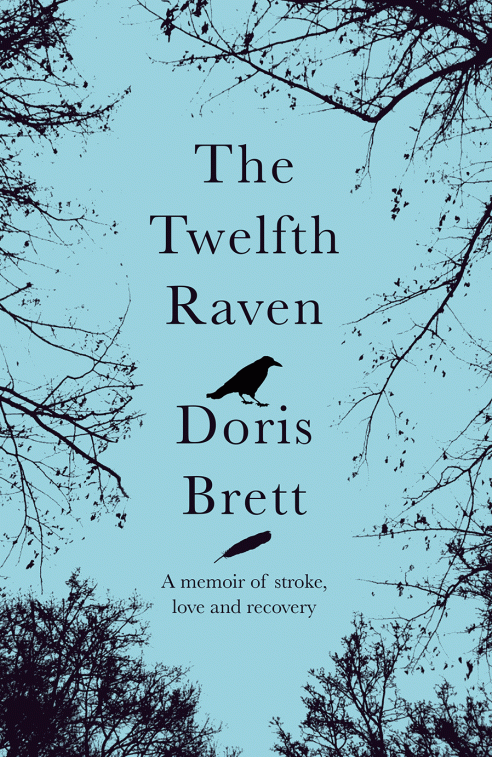What are you reading? (And what are you drinking with it?)
Name: Juliet Gore
Profession: Publisher
Book title: The Twelfth Raven
Author: Doris Brett
What are you drinking with it? Pinot Noir (Well a red’s good for strokes isn’t it?)

Thoughts so far/Quote:
This is the story told by Doris Brett about her husband’s stroke. Narrated in the form of a diary, from the moment Martin’s speech problems began, through the sobering hospital and rehab phases, Brett documents with sensitivity the frustrations, the changes to Martin’s and to her own life, the endless decisions, questions and fears, the daily challenges and breakthroughs that they faced together and alone. As a Psychologist Brett’s therapeutic understanding and wry sense of humour shine through as you read this book, which makes it strangely readable- surprising for a book about suffering a stroke!
I would imagine that the information that Brett shares could be invaluable to someone in this situation, faced with the sometimes gut wrenching decisions that must be made, literally in a heartbeat as their loved one suffers a stroke and everyday routines slip away. The point comes across loud and clear that the sense of loss suffered by all stake holders in the stroke scenario is worsened by the dearth of appropriate rehab- despite sometimes lovely staff, treatments dwell on negative aspects of the situation, poor prognosis, there’s often a lack of staff, old fashioned rehab methods, and all this is heightened by often archaic physical surroundings.
It is a fascinating insight for a lay person as well, to hear the practical and medical explanations- how speech and language is effected, the challenges of retrieving words (are they still there somewhere and just need to be rebooted?) One anecdote Brett tells is of her computer freezing, coinciding with Martin being moved to another rehab facility. Her frustration trying to reboot the computer, trying to make it respond to all her desperate measures somehow seemed to highlight the sense of incredible isolation and impotence that Martin must have been experiencing.
There is also clear evidence to support what we at NOI already know- that patients and sufferers are leading the way in driving their own rehab in this age of computers and Google. Along the journey Brett is constantly supplementing the therapies given at the rehab centre with those from her own bag of therapeutic tools and research. Among these is hypnosis tapes, which she offers from Day 1 as a form of motor imagery to relearn movement and rediscover Martin’s ‘lost’ side, followed by use of the Mirror box- even a NOI mirror box! Great stuff…
www.noigroup.com
NOIjam are collating a reading list for you. Send in yours to kat@noigroup.com for publication in this category.
Name:
Profession:
Book title:
Author:
What are you drinking with it?
Thoughts so far/Quote:

Thank you Jules x Hypnosis seems to be cropping up often these days …….
Nice one Jules thank you x…… Hypnotism seems to be appearing more and more frequently ……
Thanks for that Juliet, great to see some more neurological stuff coming onto the NOI website, demonstrating further that it is about so much more than “pain”.
I was lucky enough to be invited to the official launch of Doris Brett’s book last Tuesday, and chatted with her briefly. The overwhelming feel of the book and Doris’ words about hers and Martin’s struggles through his initial stroke and ongoing rehabilitation is the desperate need for current knowledge about neuroplasticity on the part of all the health professionals involved in patient care AND their ability to discuss this with their patients in terms of recommended management. That, and the overwhelming need for the health system to be able to address the individual and their needs, the impact of any event, etc rather than just the presenting condition was a timely reminder of the reasons why we entered into the health profession in the first place.
It also seems to fit nicely with what NOI have been pushing for years now. The endless quest for knowledge, embracing of new ideas and considering the needs of the individual as a whole.
Certainly well worth a read, both personally and professionally….
Thanks Jules, will need to pick up a copy of that! The other narrative caregivers and their beloved desperately search for is a way to re-connect the missing or broken pieces after their stroke or brain injury… a frustrating struggle for a way to “re-boot” their former self in the rehab process… and sometimes a beautiful, new self rises from the struggle (sometimes for the survivor, sometimes for the caregiver). I thought I’d share two stories which relate: http://healingintopossibility.com/ and http://raisingmariotwice.com/